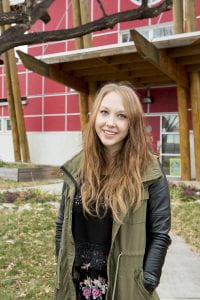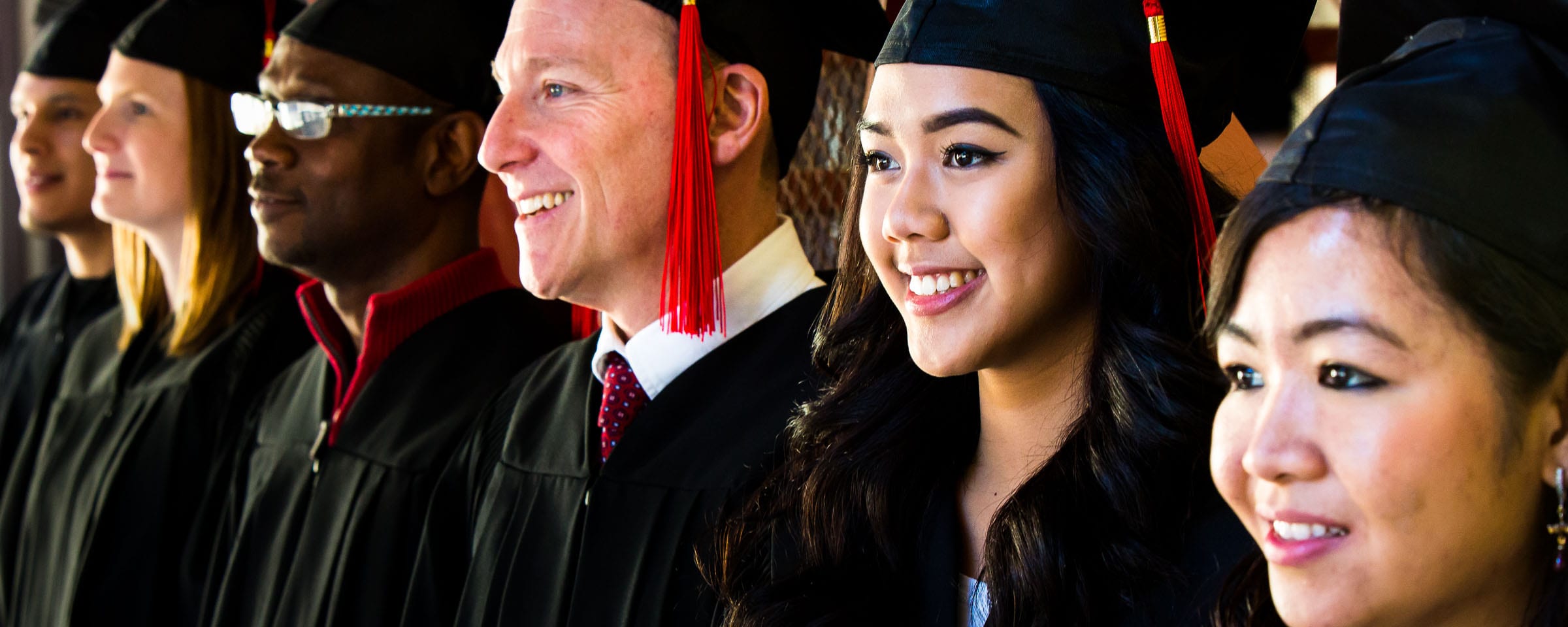Looking past the stereotypes: Applied Counselling grad helps at-risk youth avoid harmful labels
 Casey Ludwick helps at-risk youth find a voice.
Casey Ludwick helps at-risk youth find a voice.
“Who’s there for these children when everyone they care about or look up to… is ignoring them or not there?” says Ludwick, a 24-year-old graduate of Red River College’s Applied Counselling program. “You can’t tell a child to ‘Just get over it,’ because a child takes what they’re experiencing and accommodates it into how they think and see the world.”
According to Ludwick, the best way to help kids find their voices is to avoid labeling them.
“We’re so quick to label children in a certain way due to diagnoses or what we see presenting, and then we set the tone for them. How often do you think a child gets undivided attention to really speak and tell the world who they are without being told who they are first?”
Ludwick works as the girls coordinator and youth counsellor at Wahbung Abinoonjiiag Inc., a North End-based domestic violence support centre for children and families. The facility provides opportunities for holistic healing using culturally appropriate teachings.
“It is a safe, positive place where girls who live in the North End can come to have fun, relax, and learn more about themselves and their culture.”
Despite the challenging nature of the work, Ludwick loves her job; she utilizes a strength-based perspective and sees resiliency and positivity in all of her clients, who range in age from nine to 13.
“Rather than seeing these kids [according to the negatives] – they could be involved with criminal activity, they’re lacking basic food and shelter, they’re involved in tons of maladaptive behaviours – you can either focus on that, or you can look at them for their strengths.”
Ludwick has wanted to work with youth since she was a teenager herself; at the age of 13, she stopped an eight-year-old boy from committing suicide.
“It got me personally involved in the life of a child who was unhappy and I couldn’t see that just from looking at him,” she says. “All I saw were wealthy parents that worked hard, a kid that had every single video game system there was. But I didn’t take time to look beyond.”
Prior to enrolling in Applied Counselling through RRC’s School of Continuing Education, Ludwick had little experience with indigenous culture.
“I wasn’t ignoring it, I just had no clue. And I feel a lot of people aren’t ignoring it, they just have no clue.”
That changed thanks to one instructor in particular, she says.
“Ron Linklater taught me an appreciation for [Aboriginal] culture… the reality of intergenerational trauma, the loss of culture and language and the ensuing violence and substance abuse. The historical trauma increases vulnerability for the youths that I work with, and you see it every day.”
She believes the first step to building greater cultural understanding is to avoid assumptions.
“Don’t pretend you are the expert on someone’s perspective. You have to approach everything like you’re learning for the first time. That’s the only true way to understand somebody or a group’s point of view.”
Completing the Applied Counselling program changed the way Ludwick looks at herself – and the world.
“I looked back on who I was when I first started and I thought to myself, ‘Who was that person? I grew and evolved and changed so much,” she says. “It’s not about how the world affects you, it’s about how you react to the world. You can’t control what happens. What you can control is yourself and how you react.”
Ludwick says her classes were extremely well-designed and delivered, noting the program reinforces the importance of empathy.
“You may see an inebriated homeless person on the street, a young sex worker lingering in a dark alley, or a youth wearing gang colours and toting a weapon. What you don’t see is what it took to get them to this dark place they are in, what they had to experience to lead them to choosing this life over something else.”
Before arriving at RRC, Ludwick completed a three-year Psychology degree at the University of Winnipeg; she felt she needed more training before working as a counsellor.
“I graduated (from university) and I felt like, ‘OK what now?’ There was no highlighted path,” she says.
“Then I heard about Applied Counselling and it just seemed like it was the thing that would complete my educational journey for now. I needed the education that Red River offered to actually get my hands dirty, to translate my university knowledge into actual tangible experience.”
Click here for more information about Applied Counselling at RRC, and here for more information about Wahbung.
Profile by Stacy Cardigan Smith (Creative Communications, 2006)
